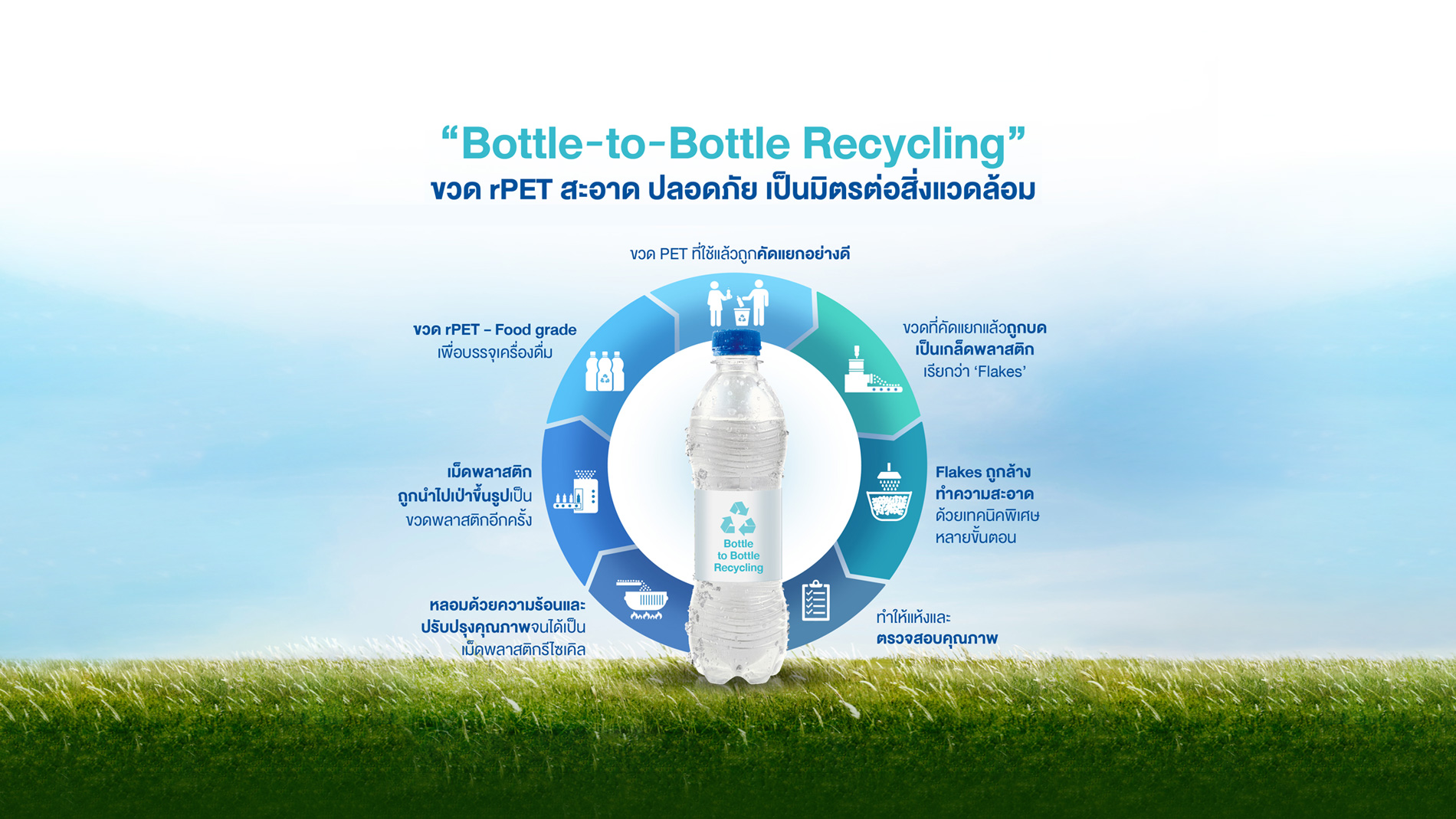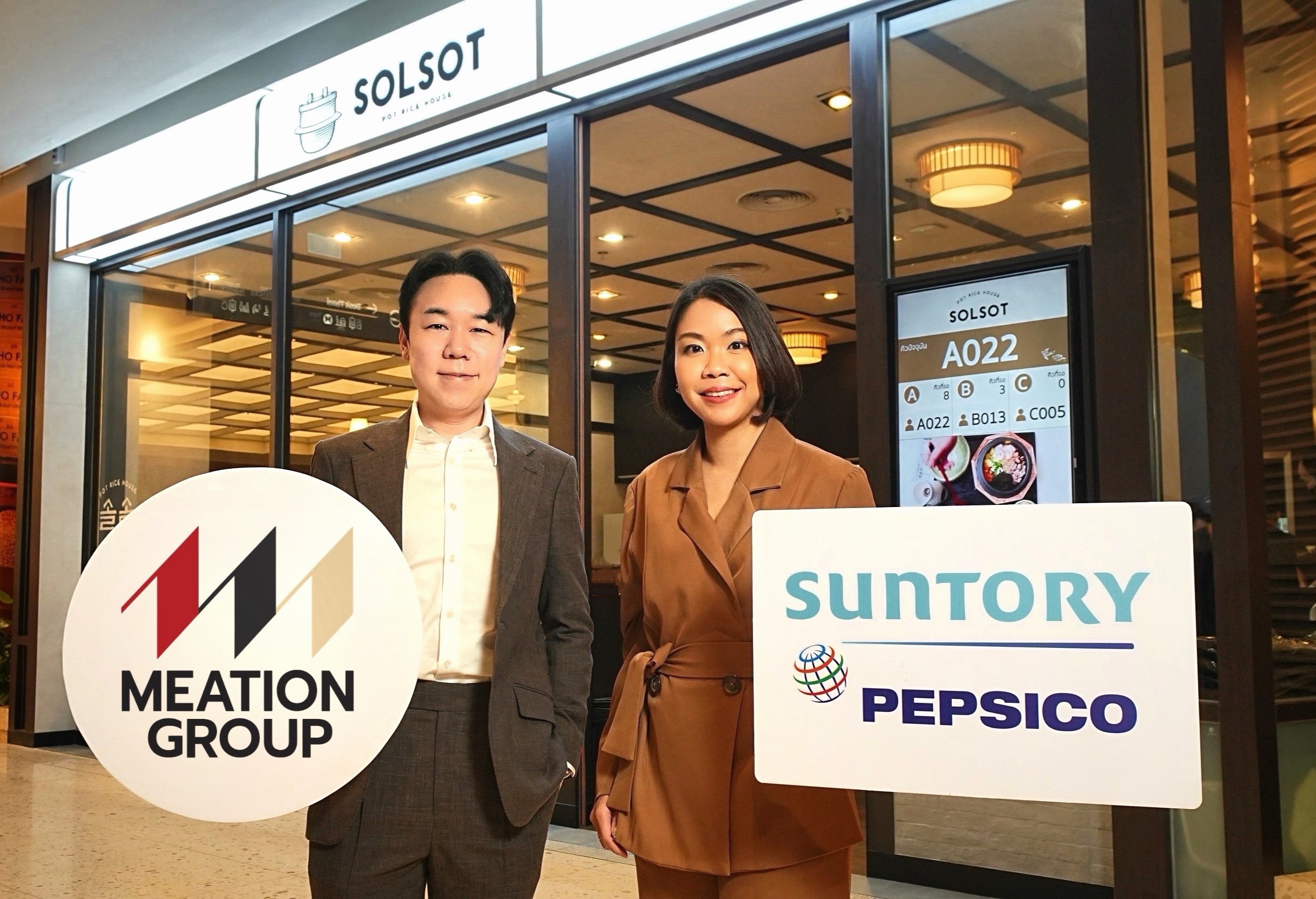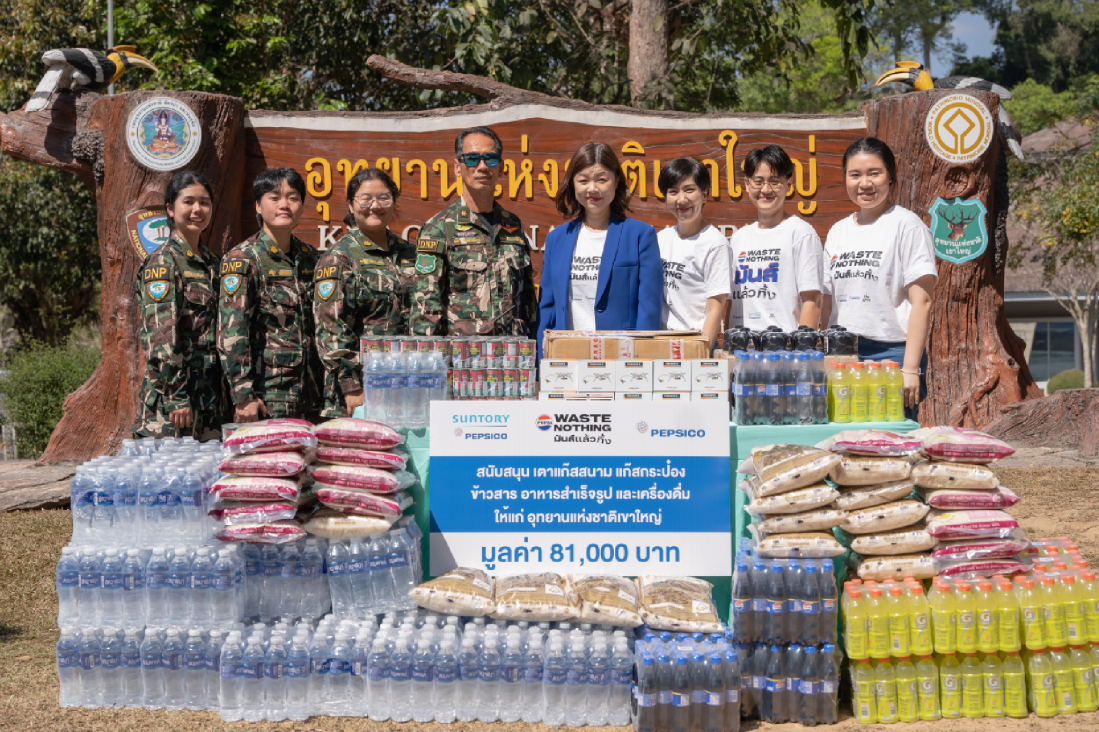Bangkok – Many of you have probably heard of plastic recycling as an approach to promoting environmental sustainability. However, most people have still had misconceptions, such as the belief that all types of plastic are recyclable, which leads to a disregard for environmentally friendly packaging and disposing of wastes without segregation. This, in turn, results in a significant number of plastics being excluded from the recycling process. To truly make a difference, it is important to have a clear understanding of plastic recycling so that we can do our part in preserving the environment.
From PET to rPET bottles: The First Step to Thailand’s Sustainability
The root cause of environmental problems may not lie in using of plastics, but rather how we manage used plastics. The important question is how to put more used plastics back into the recycling process. Suntory PepsiCo Beverage (Thailand) Company Limited, as a leading beverage manufacturer and distributor in Thailand, is committed to promoting packaging sustainability management. The company emphasizes selecting quality PET plastic and Eco-friendly packaging design to easily manage and can be 100% recyclable. After undergoing a standardized recycling process, the plastic bottles are recycled into new packaging known as recycled PET ('rPET' bottles), which is a new packaging trend that manufacturers worldwide are actively exploring are taking it very seriously. Countries in America and Europe as well as Australia, New Zealand, Japan, and Thailand’s neighbors such as Vietnam have already introduced rPET bottles to their consumers. In all these markets, rPET bottles have also been well-received by consumers.
State-of-the-art Innovation in the production of rPET bottles
Generally, we are familiar with PET (Polyethylene Terephthalate) bottles, which are clear and strong plastic, therefore, PET is often used as beverage packaging. Due to its strength and durability, once PET bottles pass the standardized recycling processes, they will be 100% recycled into 'rPET' bottles (recycled PET).
The process of producing rPET bottles begins with removing the caps and labels followed by crushing the bottles into small plastic pieces known as 'flakes.' These flakes are then cleaned by using special techniques to remove contaminants in accordance with the safety standard prescribed. After that, the flakes are melted at high temperature and go through a specific technology for quality enhancement resulting to the clean, food-grade rPET resins that are safe to be food and beverage packaging, according to the FDA’s standard. This process is called 'Bottle-to-Bottle Recycling.
Are rPET bottles safe?
As recycling technologies evolve, rPET bottles’ quality are almost the same to their virgin counterparts. They are also free from harmful contaminants. As a result, they can be safely used as food and beverage packaging in compliance with international standards, including the United States Food and Drug Administration (USFDA) and the European Food Safety Authority (EFSA). In Thailand, the Food and Drug Administration (FDA) is responsible for food safety regulations and has amended its regulation allowing the use of 'rPET' in food and beverage packaging as well as setting the stringent safety standards that are comparable to international agencies. The FDA’s standards also require rPET bottles to have the same quality as new plastic bottles to build confidence among Thai consumers.
rPET bottles pave the way towards sustainable environment
rPET bottles are going to be one of food and beverage packaging in Thailand. Suntory PepsiCo Thailand therefore encourages everyone to take part in promoting sustainable packaging management by choosing products whose packaging are the clear, colorless PET bottles as they can be recycled into rPET bottles. Importantly, we must correctly segregate post-consumption packaging to help reducing the amount of wastes leaked into the environment and bringing more clean used plastic bottles into the recycling process. By doing so, consumers can contribute for sustainable environment.
OTHER NEWS



.jpg)
